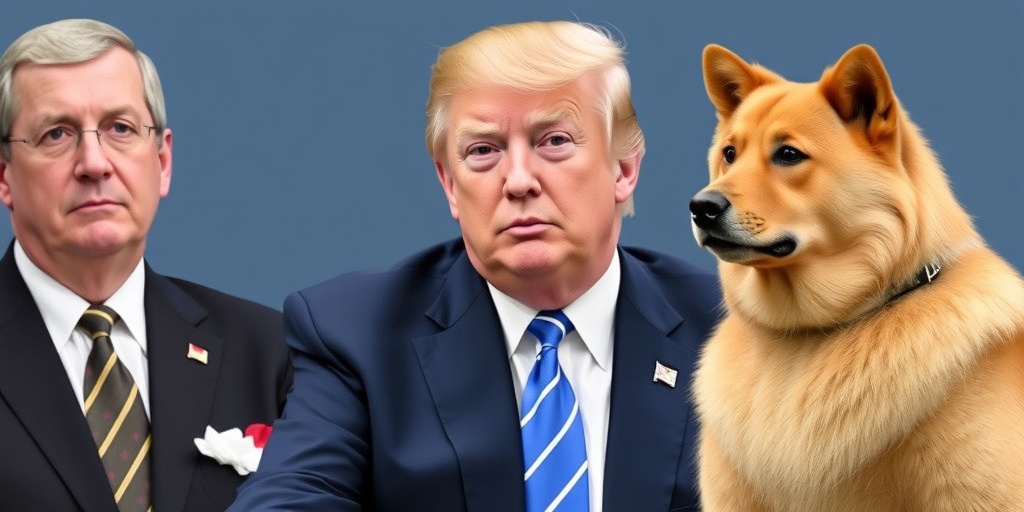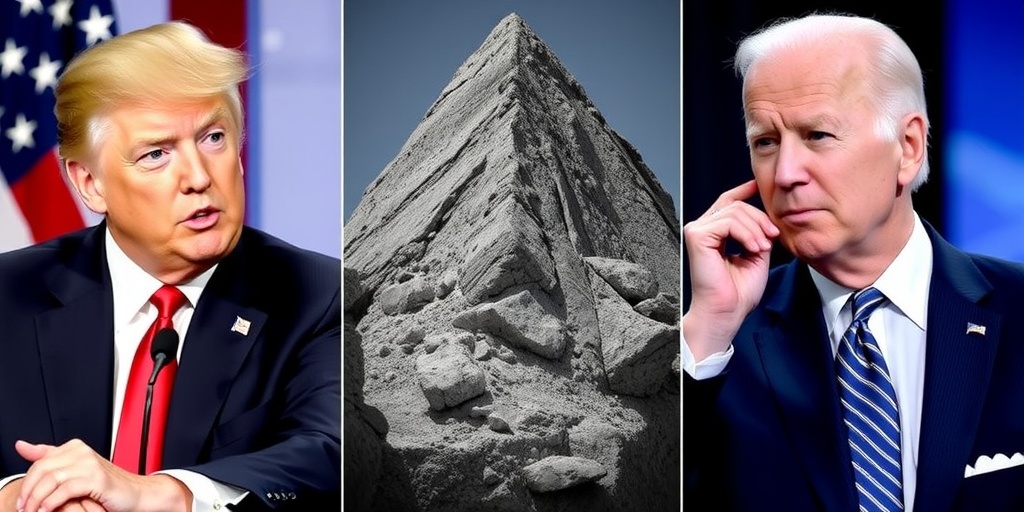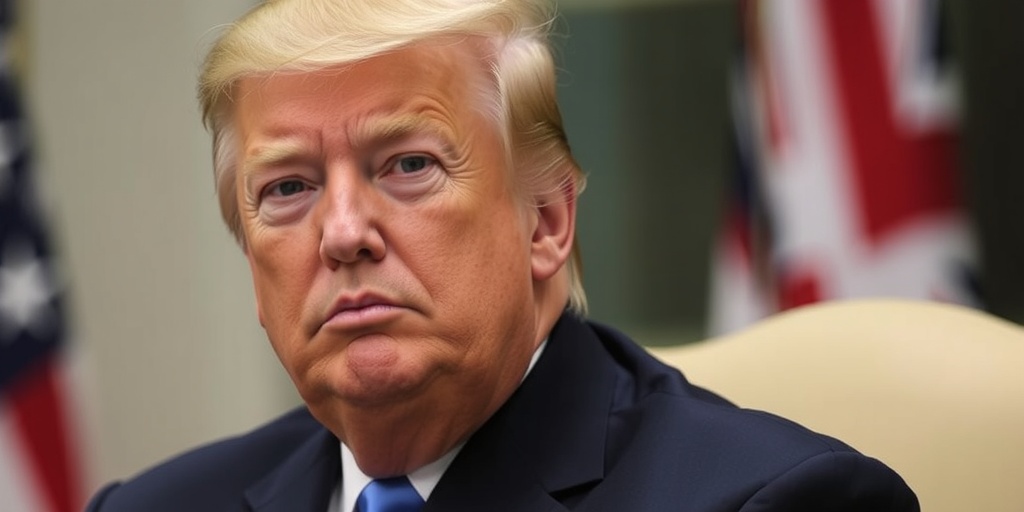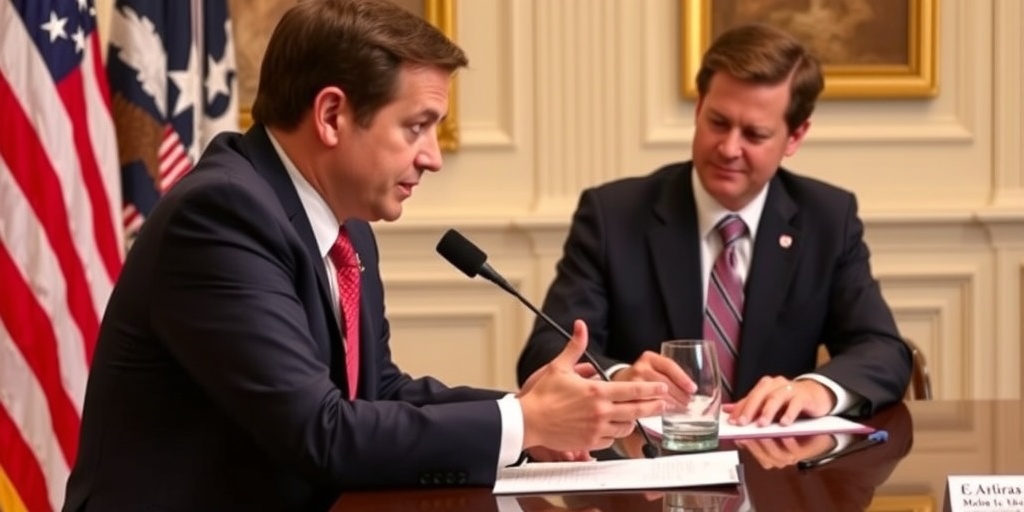Now Reading: Trump’s ‘Liberation Day’ Tariffs Set to Strain U.S. Alliances
-
01
Trump’s ‘Liberation Day’ Tariffs Set to Strain U.S. Alliances
Trump’s ‘Liberation Day’ Tariffs Set to Strain U.S. Alliances
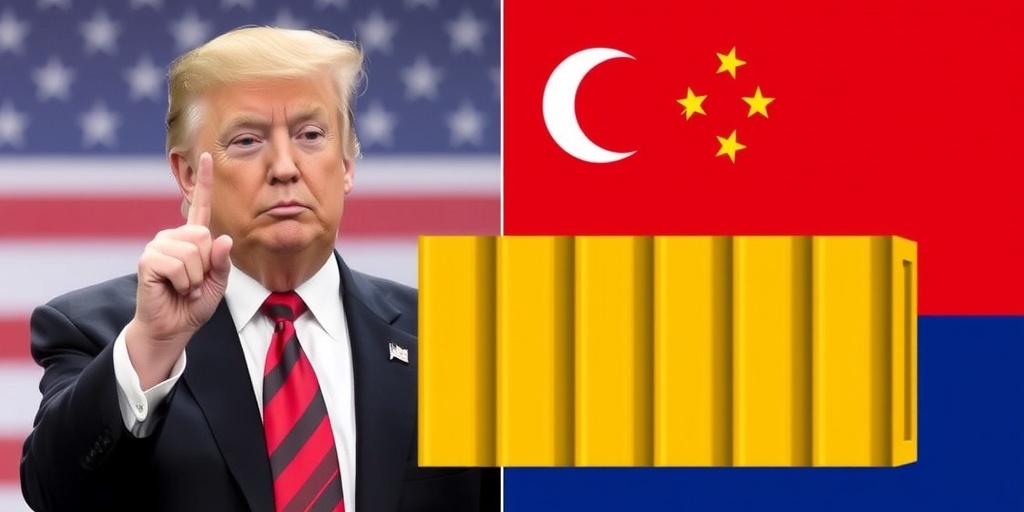
Title: Strained Alliances: The Impact of Trump’s Policies on Global Relations
In recent months, there has been a significant shift in the political landscape of international relations, particularly concerning the United States’ alliances with its closest allies. The incoming German chancellor has voiced his increasing conviction that the defense and trade ties with Washington are deteriorating. In light of this, he has laid out plans to pursue "independence from the U.S.A." This sentiment of discontent is not confined to Germany; it has echoed across the Atlantic.
Canada’s new prime minister recently declared that the longstanding partnership with the United States—characterized by tight military and economic cooperation—has come to an end. Similarly, Poland’s president has publicly contemplated the acquisition of nuclear weapons, pondering the need for greater security independence. Notably, the new leader of Greenland expressed indignation towards an American delegation’s unannounced visit, asserting that Greenland belongs to no one but its own people. These reactions are indicative of a broader sentiment among allies who feel estranged by the current U.S. administration’s policies, which have included threats to abandon NATO allies and scathing remarks about the European Union’s purpose.
As President Trump prepares to unveil his "Liberation Day" tariffs, the political atmosphere grows tenser. The specifics of these tariffs remain ambiguous, leading to anxiety in the markets and among political leaders. While the administration has indicated that the tariffs will target nations deemed adversaries—like China—as well as traditional allies, there has been little discussion about the potential consumer costs or the repercussions for American agriculture. Trump’s administration, critics argue, lacks a coherent cost-benefit analysis regarding whether the anticipated revenue from these tariffs justifies the potential damage to fundamental alliances.
The nuances of Trump’s approach to foreign relations manifest in an evolving demand for financial contributions from nations that host American troops or benefit from U.S. security. His targets now face pressure to provide substantial payments under the pretext of supporting American interests. In a troubling sign for U.S. diplomacy, Trump has hinted that significant retaliatory tariffs could be imposed if the European Union collaborates with Canada to harm U.S. economic interests.
In a display of solidarity, China recently announced that its trade minister engaged with Japan and South Korea to formulate a collective response to U.S. actions. This initiative demonstrates Beijing’s willingness to foster relationships with Washington’s allies, potentially isolating the United States further on the global stage.
Critics view the "Liberation Day" tariffs as a continuation of Trump’s declared objective to prioritize American economic interests over global alliances. In his inaugural speech, Trump expressed a desire for America to not subsidize other nations at the expense of its own citizens. With the tariffs, he appears to be prioritizing a significant shift away from traditional diplomacy towards an economic model that may not only jeopardize U.S. alliances but also fundamental international protocols.
Historically, the defense relationships, trade interdependencies, and mutual bonds that have developed over decades among NATO and other allied nations have been mutually reinforcing. This framework is now perceived by Trump and his supporters as a system that disproportionately benefits American allies at U.S. expense. Communications among Trump’s inner circle have revealed a disdain for what they view as European freeloading, which has prompted discussions about the financial return on military assistance.
These sentiments resonate throughout senior officials, who express a desire for America’s military responsibilities to be met with equivalent economic reciprocation from allied nations. Conversations regarding troop deployments and defense measures now hinge on whether other nations are willing to "pay up" for America’s military engagement.
The ongoing friction has engendered a palpable erosion of trust among NATO allies, with discussions emerging about the feasibility of a peacekeeping or observer force in Ukraine, independent of U.S. involvement. European nations are recognizing the urgency to enhance their defense budgets and capabilities, a commitment that may take years to materialize fully.
In this evolving geopolitical landscape, experts stress the importance of maintaining alliances built on shared values and economic partnerships. The U.S. must grapple with the reality that should crises arise, the absence of reliable allies could significantly hinder its global standing and response capability. With the trust among allies waning, the crux of U.S. foreign policy pivots on the critical question: Who will support American interests in times of crisis, and how will global sentiment toward the U.S. evolve amidst these tumultuous policy changes?
As NATO countries prepare for an uncertain future, the realization dawns that America’s relationships built over decades are more precarious than ever, necessitating a thoughtful reassessment of diplomatic strategies and international engagement. The stakes could not be higher as the world watches to see how this dynamic unfolds in the coming months.
Stay Informed With the Latest & Most Important News
Previous Post
Next Post
-
 01New technology breakthrough has everyone talking right now
01New technology breakthrough has everyone talking right now -
 02Unbelievable life hack everyone needs to try today
02Unbelievable life hack everyone needs to try today -
 03Fascinating discovery found buried deep beneath the ocean
03Fascinating discovery found buried deep beneath the ocean -
 04Man invents genius device that solves everyday problems
04Man invents genius device that solves everyday problems -
 05Shocking discovery that changes what we know forever
05Shocking discovery that changes what we know forever -
 06Internet goes wild over celebrity’s unexpected fashion choice
06Internet goes wild over celebrity’s unexpected fashion choice -
 07Rare animal sighting stuns scientists and wildlife lovers
07Rare animal sighting stuns scientists and wildlife lovers













